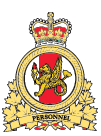Letter to the Editor
For more information on accessing this file, please visit our help page.

Sir,
I read with some dismay a remark within the recent article entitled “Conscience and the Canadian Armed Forces,” by Padre Capt. Victor Morris (Vol. 17, No. 2) that Capt. Robert Semrau could have readily interpreted the First Principle of Defence Ethics, “respect the dignity of all persons,” to justify shooting an incapacitated enemy insurgent. As discussed in my own recent article in this journal on the foundations of secular defence ethics (“Humanism and the Military Conscience: A Reply to Pichette and Marshall,” (CMJ Vol.16, No.3, Summer 2016), the First Principle encapsulates the inherent worth of every person and his or her basic human rights, including life and self-determination. The First Principle is, by necessity, aligned with the Laws of Armed Conflict, including an absolute prohibition on ever intentionally targeting either a civilian or a former adversary now hors de combat. Perhaps Morris is demonstrating that an evident lack of understanding of the foundation of Defence Ethics reinforces the need for ongoing reflection and discussion among military members on the meaning of its statements.
The Semrau incident is also a dubious example to support the claim that there may be an inherent tension between the voice of conscience and military law and military professionalism. Morris provides a very strong definition of conscience:“…a powerful and motivating force compelling and driving a person to act in accordance with personally held beliefs,” based upon one’s “knowledge, wisdom, and understanding.” Semrau’s decision was necessarily made in haste just after the end of a battle. It can be reasonably doubted that, if he had had time to reflect upon his conscience before acting, Semrau would have arrived at the same conclusion as he did. This reasonable doubt exists even if Semrau thinks otherwise. Reasoned ethical arguments about his choice (as have also been provided in earlier issues of the Journal) have failed to find a stronger defence for the shooting other than acknowledging that no ideal options were available to Semrau, who may have been motivated by some kind of ethically-misguided pity that perhaps overcame better judgment under extreme stress. In other words, I assume that Semrau, as a product of the Officer Corps, under less unlucky and trying conditions might well have been more receptive to ethical assumptions and reasoning accepted within the Canadian military profession.
It is very much relevant that the pressures and urgencies of operational theatre frequently don’t allow for full reasoning about an ethical problem. If we use a weaker definition of conscience such as “what one intuits to be the best course at any moment of serious choice,” then there are more likely to be conflicts between “conscience” thus defined, and ethical reasoning. But such a weaker definition also suggests that “conscience” in very difficult moments should be informed as effectively as possible by the fruits of disciplined ethical inquiry undertaken in some more peaceful and unconstrained setting.
A proper schooling in military ethics at the tactical level is necessary to help apply one’s professional identity and values in operations. Given the differences between classrooms and the thick of battle, there is probably a need to reinforce the conclusions of reasoning by repetitive simulations of real-life ethical dilemmas that will shape reflexes under pressure when actual dilemmas in combat are later encountered. The conscience cannot be some mysterious inner voice that rightly disregards whatever moral reasoning of which one is capable, simply because there is little time to think calmly at a moment of critical choice.
Stephen Hare, Ph.D.
Manager, Development and Support
Defence Ethics Programme, Department of National Defence







